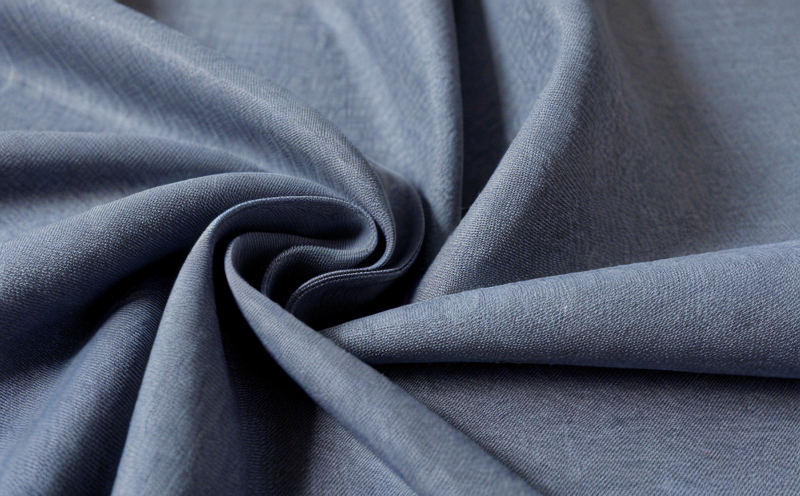Textile fabric resistance
The Crucial Role of Textile Fabric Resistance in Ensuring Product Safety and Performance
In todays fast-paced and highly competitive market, businesses are constantly seeking innovative ways to enhance the quality and durability of their products. One critical aspect that often gets overlooked is the importance of textile fabric resistance testing. This laboratory service, provided by Eurolab, plays a vital role in guaranteeing the safety and performance of fabrics used in various industries, including textiles, apparel, upholstery, and more.
What is Textile Fabric Resistance?
Textile fabric resistance refers to the ability of a material to withstand various environmental factors that can cause damage or degradation. This includes physical forces such as abrasion, wear, and tear; chemical reactions like dye bleeding or fading; and exposure to extreme temperatures, humidity, and light. By evaluating the resistance of fabrics to these external influences, manufacturers can ensure their products meet specific standards and regulations.
Why is Textile Fabric Resistance Essential for Businesses?
Incorporating textile fabric resistance testing into your quality control process has numerous benefits that can significantly impact your businesss success. Here are some key advantages
Compliance with Industry Regulations Adhering to industry-specific standards ensures that your products meet the required safety and performance criteria, reducing the risk of product recalls or liability claims.
Enhanced Product Durability By selecting fabrics with improved resistance properties, you can extend the lifespan of your products, minimizing waste and replacement costs.
Increased Customer Satisfaction Consumers expect their purchases to withstand normal use and environmental conditions. Ensuring fabric resistance ensures a positive user experience, fostering brand loyalty and reputation.
Reduced Production Costs Identifying and selecting high-quality fabrics with inherent resistance properties can lead to cost savings by reducing the need for additional treatments or coatings.
Competitive Advantage Demonstrating a commitment to quality and safety through rigorous testing and certification can differentiate your products in the market, appealing to environmentally conscious and health-aware consumers.
Key Benefits of Textile Fabric Resistance Testing
Improved Abrasion Resistance Evaluates fabric durability against repeated wear and tear, ensuring that materials withstand daily usage.
Enhanced Chemical Resistance Assesses fabric stability when exposed to various chemicals, such as dyes, finishes, or cleaning agents, preventing damage or discoloration.
Increased UV Stability Tests fabric ability to resist degradation caused by ultraviolet (UV) radiation, maintaining colorfastness and appearance.
Better Thermal Resistance Evaluates fabric performance under extreme temperatures, ensuring that materials remain stable and functional in various environments.
Improved Wash Fastness Assesses fabric resistance to color loss or bleeding during washing cycles, guaranteeing consistent color appearance.
How Does Eurolabs Textile Fabric Resistance Service Work?
Our state-of-the-art laboratory facilities are equipped with cutting-edge equipment to perform a range of textile fabric resistance tests. Our expert technicians will
Conduct Initial Testing Identify the specific requirements and standards for your products, selecting the most relevant testing protocols.
Sample Preparation Carefully prepare fabric samples according to the selected test methods.
Testing and Evaluation Perform rigorous testing using standardized equipment and methodologies.
Reporting and Certification Provide comprehensive reports detailing test results, with certification issued upon satisfactory completion.
Frequently Asked Questions (FAQs)
Q What types of fabrics can be tested for resistance?
A Our laboratory is equipped to handle a wide range of fabric materials, including cotton, polyester, nylon, wool, silk, and blends.
Q How do I determine the correct testing protocols for my products?
A Our experienced team will conduct an initial consultation to identify specific requirements based on industry standards, product applications, and end-use environments.
Q Can you provide certification for our tested fabrics?
A Yes, upon satisfactory completion of the testing process, we issue a comprehensive certificate detailing test results and conformance to relevant standards.
Q What is the typical turnaround time for textile fabric resistance testing?
A Turnaround times vary depending on the complexity of tests required. However, we strive to deliver results within 2-4 weeks, ensuring timely decision-making.
Conclusion
In todays competitive market, ensuring the safety and performance of your products through rigorous testing and certification is crucial. Eurolabs textile fabric resistance service offers a comprehensive solution for businesses seeking to enhance their product quality, reduce costs, and maintain compliance with industry regulations. By entrusting us with your testing needs, you can confidently meet the evolving demands of consumers while establishing a strong reputation in the market.
Why Choose Eurolab?
Expertise Our team consists of highly trained professionals with extensive experience in textile testing and analysis.
State-of-the-Art Facilities Our laboratory is equipped with cutting-edge equipment, ensuring accurate and reliable test results.
Comprehensive Services We offer a wide range of testing protocols to meet specific industry standards and requirements.
Dont compromise on the quality and performance of your products. Trust Eurolab for exceptional textile fabric resistance testing services and ensure a safe, durable, and sustainable future for your business.




